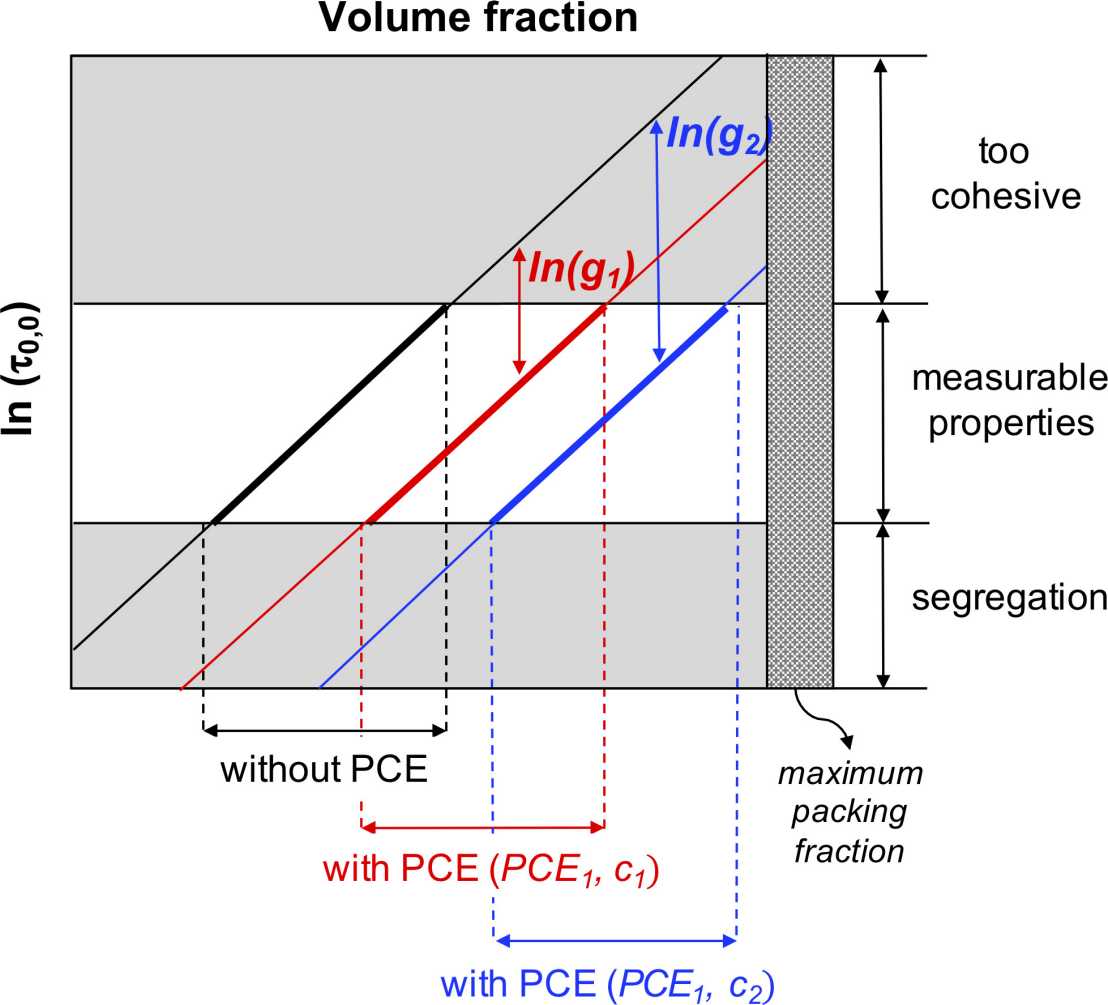New insights into yield stress
From the PhD of Ms. Sara Mantellato sponsored by the Swiss National Science Foundation, a paper has been published in the Journal of the American Ceramic Society. This work provides a new approach to accounting for effects of solids volume fraction and superplasticizer dosage on the yield stress of admixed cementitious systems. It constitutes an essential element to the analysis of the loss of fluidity that such systems undergo over time.

Abstract
One of the main challenges when studying the rheology of cementitious systems is that cement particles are large and susceptible to gravity, in particular in dispersed systems. This implies that the range of volume fractions over which rheological properties of cement pastes can be measured is limited, as too high water content causes segregation and too low water content results in pastes that are too cohesive to measure.
Consequently, the impact of the volume fraction of solids on yield stress is still not reliably established. A similar situation is encountered when studying cementitious systems with superplasticizers, whose impact is highly dependent on dosage. An important issue here is that admixture effects cannot be reliably established with respect to non-admixed references as the latter ones can most often not be measured at the volume fractions for which admixed pastes do not segregate. The “Shifting factor” approach presented in this paper overcomes this long-standing issue establishing exponential dependences of yield stress both with respect to volume fraction and admixture adsorption.
Read the full paper external page here:
Mantellato, S, Flatt, RJ. Shifting factor—A new paradigm for studying the rheology of cementitious suspensions. J Am Ceram Soc. 2020; 103: 3562– 3574